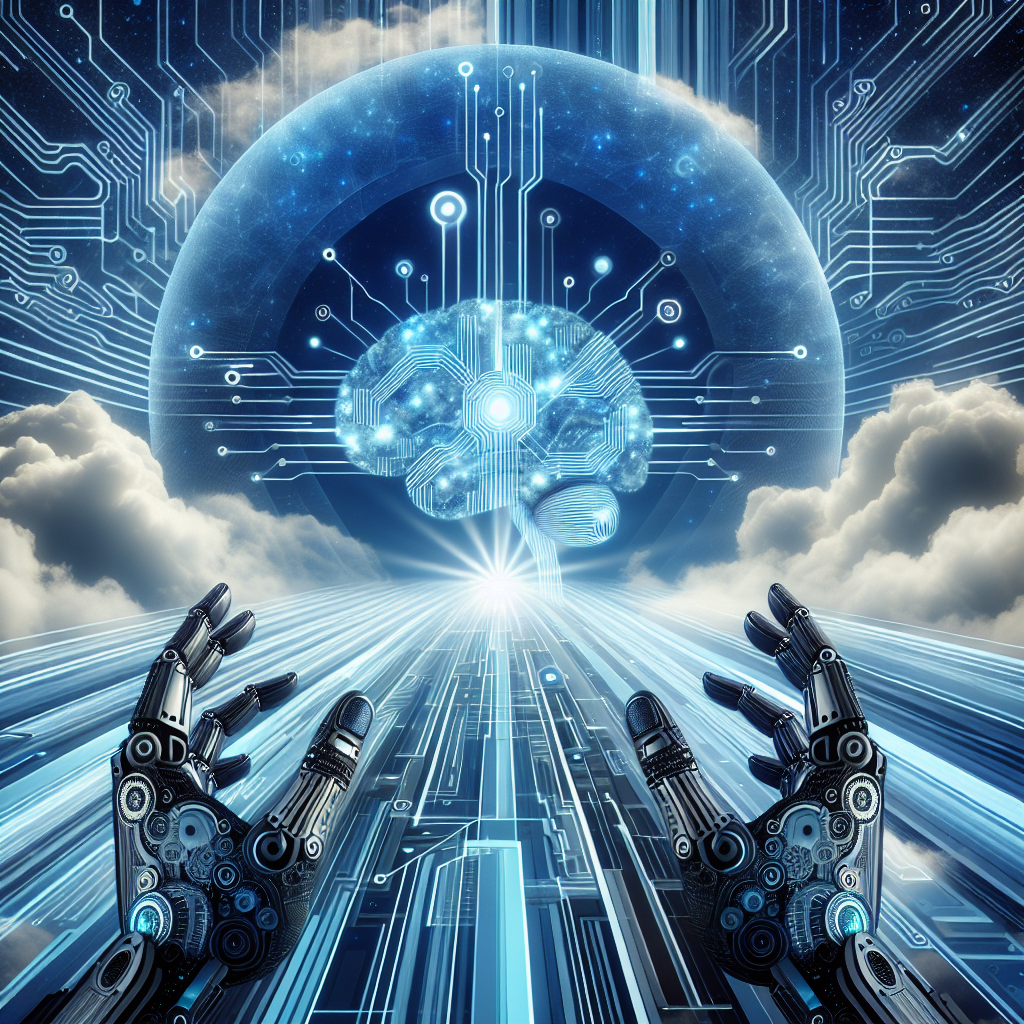Artificial Intelligence (AI) has been a game-changer in various industries, revolutionizing the way we work, interact, and live. From self-driving cars to virtual assistants, AI technology has proven to be incredibly versatile and transformative. In this article, we will explore the limitless potential of AI innovation and how it is breaking boundaries in different fields.
The Growing Influence of AI
AI technology has rapidly evolved in recent years, enabling machines to perform tasks that were once thought to be exclusive to human intelligence. With the ability to analyze massive amounts of data, AI systems can provide valuable insights and make decisions with unprecedented accuracy. This has opened up new possibilities in sectors such as healthcare, finance, and manufacturing, where AI algorithms are being used to improve efficiency, reduce costs, and enhance overall performance.
One of the key strengths of AI is its ability to learn and adapt. Machine learning algorithms can recognize patterns in data and make predictions based on past experiences. This has led to the development of AI-powered tools that can automate repetitive tasks, optimize processes, and even create new solutions to complex problems. As AI continues to advance, we can expect to see even more groundbreaking innovations that will revolutionize industries and improve our daily lives.
Breaking Boundaries with AI Innovation
AI innovation is pushing the boundaries of what is possible, transforming industries and fueling economic growth. In healthcare, AI is revolutionizing diagnostics and treatment planning, with the potential to improve patient outcomes and reduce healthcare costs. AI-powered imaging systems can analyze medical images with higher accuracy than human radiologists, leading to faster and more accurate diagnoses. AI algorithms are also being used to predict diseases and personalize treatment plans based on an individual’s genetic makeup and medical history.
In the finance sector, AI is revolutionizing the way we manage money and make investment decisions. AI-powered chatbots can provide personalized financial advice and help users make informed choices about their investments. AI algorithms are also used to detect fraudulent transactions, identify investment opportunities, and optimize trading strategies. These advancements are changing the way financial institutions operate, making them more efficient, transparent, and customer-centric.
In manufacturing, AI is driving the next industrial revolution, with smart factories that are more efficient, agile, and sustainable. AI-powered robots can perform complex tasks with precision and speed, improving productivity and reducing errors. AI algorithms are used to optimize supply chains, predict maintenance needs, and make real-time adjustments to production processes. By harnessing the power of AI, manufacturers can create smarter, more competitive businesses that can adapt to changing market demands and deliver superior products to customers.
Conclusion
AI innovation is reshaping the world as we know it, breaking boundaries and unlocking new possibilities for businesses, governments, and individuals. From healthcare to finance to manufacturing, AI technology is transforming industries and opening up new avenues for growth and development. As AI continues to evolve, we can expect to see even more groundbreaking innovations that will revolutionize the way we work, live, and interact with technology. The limitless potential of AI is only beginning to be realized, and the future is full of exciting possibilities that will shape the world for generations to come.
FAQs
What is Artificial Intelligence (AI)?
Artificial Intelligence (AI) is the simulation of human intelligence processes by machines, especially computer systems. These processes include learning (the acquisition of information and rules for using the information), reasoning (using rules to reach approximate or definite conclusions), and self-correction.
How is AI used in healthcare?
In healthcare, AI is used for various applications such as medical imaging analysis, personalized treatment planning, predictive analytics, and virtual health assistants. AI technology is revolutionizing the way healthcare providers diagnose and treat diseases, improving patient outcomes and reducing costs.
What are the ethical implications of AI?
AI raises ethical concerns related to privacy, bias, accountability, and the potential impact on jobs and society. As AI technology continues to advance, it is essential to address these ethical issues and ensure that AI systems are developed and deployed responsibly.
Quotes
“Artificial intelligence is the future, and the future is here.” – Unknown
Write a story about a group of friends who uncover a hidden treasure map while exploring an old abandoned house.


